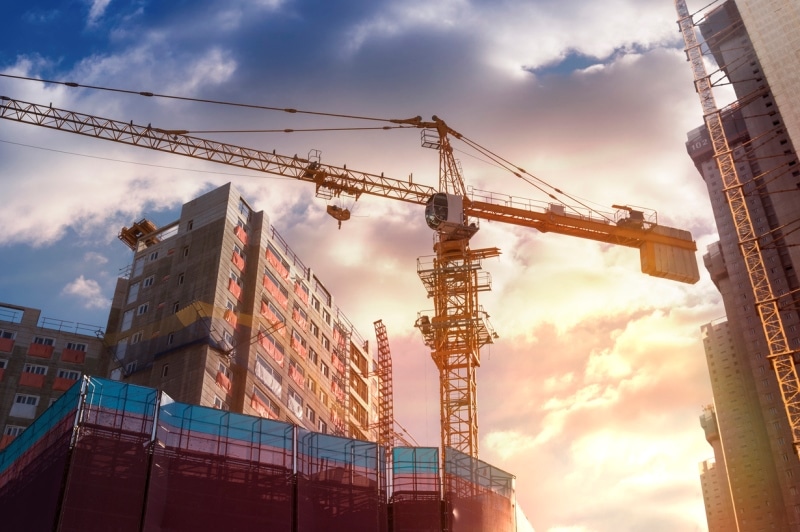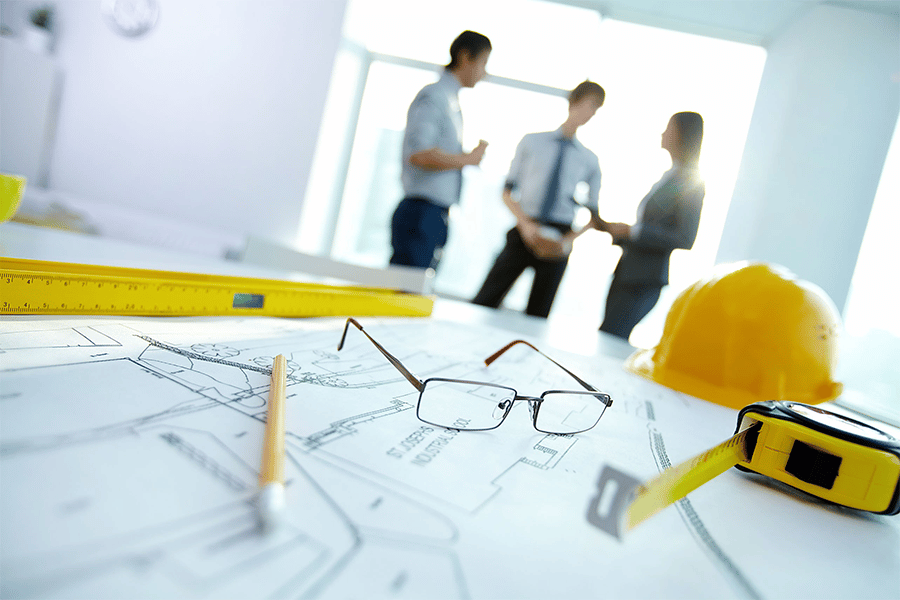Artificial Intelligence (AI) has the power to uplift the construction industry to the next level, making it essential for every construction project. AI-backed software solutions can help project managers and construction managers to improve their performance. Find out how the roles of a project manager and a construction manager differ in this comprehensive post by Procore.
Like any other industry, the engineering and construction (E&C) industry has a great potential to embrace artificial technology. A study report by McKinsey & Company states that the sector is worth $10 trillion every year.
Due to lack of digitization, the productivity gap in the construction sector is about $1.6 trillion. In its latest report, McKinsey predicted that the E&C industry would be slow to adopt artificial intelligence technology.
However, it expects more construction firms to embrace AI for their on-site processes. So what are the capabilities of artificial intelligence technology? In this comprehensive guide, we explore the most powerful applications of AI in the construction industry.
IMAGE: PIXABAY
1. Consistent Design Optimization
Traditionally, contractors manually evaluate the feasibility of a construction project, including building designs and materials. While this approach is essential, it might result in delays and loss of revenue during planning.
With artificial intelligence, project managers can employ a supervised learning system to collect, analyze, and process vast amounts of data for construction. AI can recommend a contractor design optimizations, optimal material costs, and human capital arrangements required to construct a building.
AI can offer both exterior and interior design optimizations in a construction project that include structural layout changes or better architectural finishes like wall finishes and curtain designs. Contractors and apartment owners can use the information to make informed decisions, prepare a workable schedule, and complete the project on time.
2. Risk Management
Risk management is a vital aspect that every construction firm should focus on when planning the building process of an apartment. As construction involves many parameters, contractors should adopt powerful risk management tools to implement construction projects successfully.
With AI-powered technologies like drones and image recognition, construction companies can mitigate on-site risks while promoting the safety of workers. That will reduce cases of on-site injuries and fatalities of workers.
Drones can inspect construction sites at all times and capture images or videos, allowing operators to get a real-time report from every part of the area. If a building under construction gets damaged, contractors can send drones, instead of humans, to assess damages. AI techniques can also help contractors to identify potentially hazardous areas and devise mechanisms for improving safety in such places.
3. Talent Retention & Development
The success of a building project relies heavily on skilled labor. If laborers exit before the project ends, searching for replacements might consume disproportionate time, translating into losses and reduced productivity and efficiency.
According to McKinsey, the E&C industry will find it challenging attracting and retain top-talented laborers in the coming years. With the help of AI technology and machine learning algorithms like the Gaussian mixture model, contractors can overcome such problems.
Many industries have employed AI-based technologies to improve talent retention and development. The unsupervised machine learning algorithms can help project managers to accurately predict a shortage of talent and design an effective plan to fill vacant positions. AI can also recommend contractors the best methods for improving talent retention.
4. AI-Based Preventive Maintenance
Without an established system like AI, maintaining a building during and after construction can be time-consuming and cumbersome. For that reason, it is essential for construction firms to embrace AI to complement human efforts in preventative maintenance of buildings.
Contractors can use cameras and sensors to capture relevant data and employ machine learning algorithms on the captured data, to monitor property efficiently. Using artificial intelligence, contractors can quickly pinpoint specific areas that need maintenance.
Besides identifying defective areas, AI technology can also schedule maintenance activities, ensuring that all components of a building are working correctly. That can increase the productivity of a construction firm as well as reduce maintenance costs.
5. Optimization Of Project Schedules
From the time of a project’s inception to implementation, contractors often find it hard to prepare project schedules. As a powerful tool for project planning, AI provides effective optimization of plans, making sure that construction projects meet timelines.
Issues such as misuse of materials, labor availability issues, and restocking can also paralyze project planning as they are time-consuming to be put on course correction. With the help of AI-backed schedule optimization, contractors can effectively plan project activities, reducing delays.
With artificial intelligence, contractors can also forecast the deliverables of a construction project by analyzing past project data. AI predicts a timeline of upcoming activities in the life cycle of a construction project.
6. Quality Control
When it comes to quality control, construction firms use machine learning algorithms to improve their processes. For instance, contractors can analyze drone-captured images of damaged areas and compare them with original plans. AI technology also helps project owners to create risk mitigation plans for project contingencies.
Final Words
Without a doubt, artificial intelligence is the future of the construction industry. Despite the proven capabilities of AI technology to generate high returns on investment, many engineering and construction companies have not implemented the technology. For that reason, it’s imperative for construction managers to be aware of the latest developments in AI technology.
If you are interested in even more technology-related articles and information from us here at Bit Rebels, then we have a lot to choose from.


COMMENTS